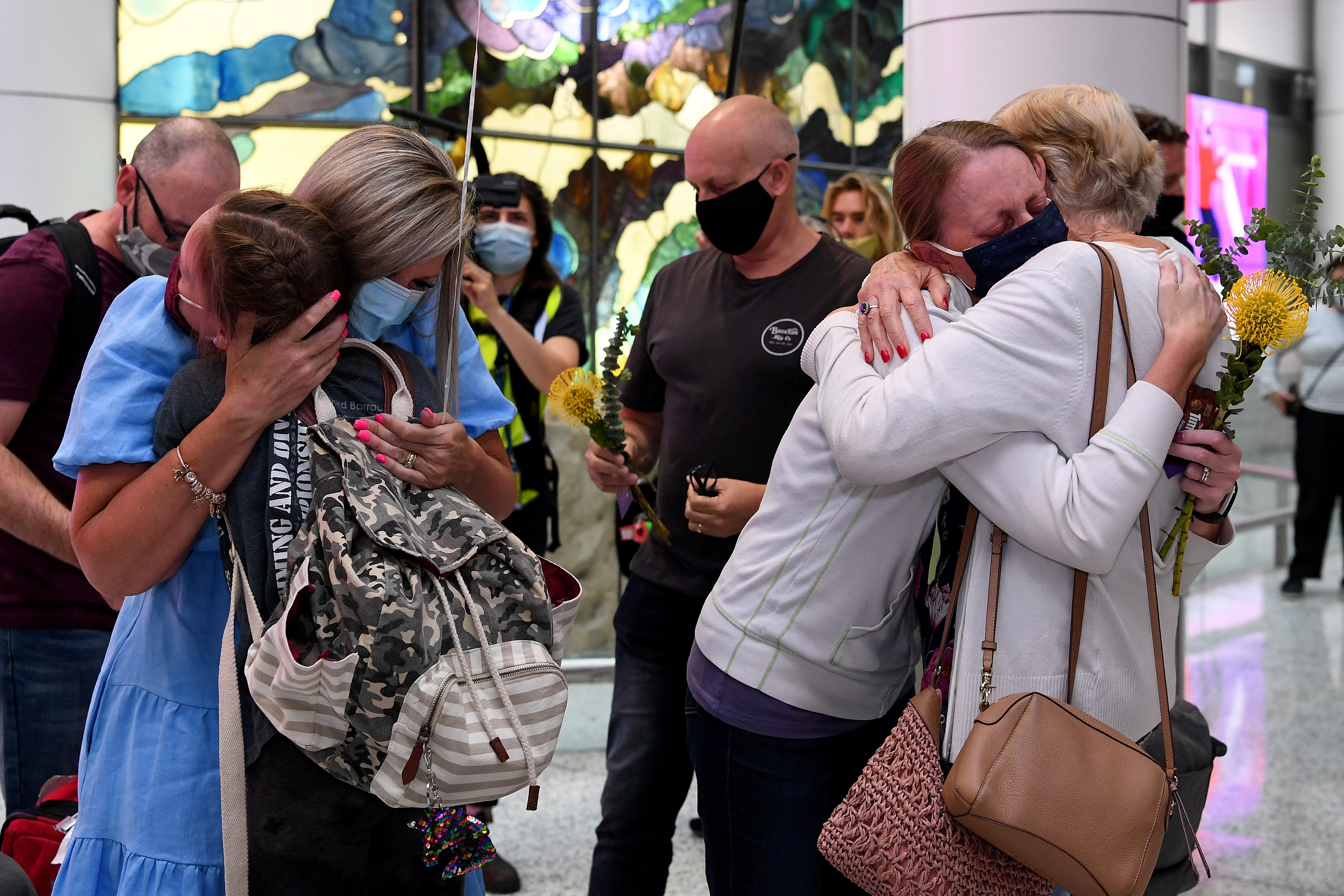Thailand, Australia ease international border curbs spurred by pandemic


BANGKOK/SYDNEY - Australia and Thailand eased international border curbs significantly on Monday (Nov 1) for the first time in 18 months, offering an early litmus test of the demand for tourism and travel in Asia following the coronavirus pandemic.
Hundreds of vaccinated foreign tourists arrived in the Thai capital for quarantine-free travel after the southeast Asian nation gave the green light for such visitors from more than 60 countries, including China and the United States.
Several European nations are also on the list as Thailand, one of the region's most popular destinations, looks to capitalise on northern hemisphere visitors aiming to escape the winter blues.
Those hopes appeared to pay off early, with German tourist Simon Raithel and a group of friends among the first to arrive in Bangkok.
"Right now, in Europe, it's quite cold," said Raithel, 41, who planned to head to islands in the Thai south. "We just picked this flight and it is quite surprising that we are the first flight to arrive."
In Sydney, hundreds of citizens were greeted by family and friends, receiving gifts of Australian chocolate biscuits and wildflowers as they became the first to arrive without a permit or the need to quarantine since April 2020.
"(It's a) little bit scary and exciting," said Ethan Carter, who flew in on a Qantas Airways flight from Los Angeles. "I've come home to see my mum 'cause she's not well."

While travel is limited at first to just a few states and to Australian citizens, permanent residents and their immediate families and New Zealand nationals, it heralds a plan to re-open to international tourists and workers, both much needed to reinvigorate a fatigued nation.
Australia's announcement of quarantine-free travel for Singapore citizens from Nov 21 was a step forward to "a new normal", said Philip Goh, the Asia-Pacific vice president of airline trade body IATA.
"We are excited by this positive development and we look forward to further easing of border restrictions by Australia and other countries in the region," Goh said.
"It will provide the needed boost for the recovery of the aviation industry and air travel sector."
Despite the eased curbs, travel in full swing is a long way off. IATA estimates losses of a towering US$200 billion (S$270 billion) from the pandemic for the global aviation industry over the period from 2020 to 2022.
Losses in Asia alone were close to US$50 billion in 2020, while in both August and September, international travel in Asia-Pacific stood at about four per cent of 2019 levels.
Thailand has been hit hard by the pandemic, losing about three million jobs dependent on tourism, and revenue of an estimated US$50 billion a year.
Thai officials tested the waters by re-opening the resort island of Phuket in July, letting fully-vaccinated tourists skip the then-mandatory two weeks in quarantine, provided they kept to the island, where tourism accounts for 90 per cent of the economy.
However, the "Phuket Sandbox" was less popular than hoped, with arrivals in July at just one per cent of pre-pandemic levels.
The finance ministry forecasts just 180,000 foreign arrivals this year and seven million next year, down from about 40 million in 2019.
Thailand's new programme requires visitors to spend their first night in a pre-approved hotel and get a negative Covid-19 test before they can travel elsewhere.
Australia's changes allow free travel by millions in the states of New South Wales and Queensland, and the Australian Capital Territory. Other locations, however, are closed or restricted.
"We still have a long way to go in terms of the recovery of our sector," said Geoff Cuthbert, the chief executive of Sydney Airport.
"But allowing fully vaccinated Australians to travel without quarantine will provide the template for bringing back students, business travellers, and tourists from all over the world."
Western Australia, one of the world's biggest producers of iron ore, will stay largely closed to the rest of the country and the world, however, as the state tries to stay virus-free.
Thailand and Australia had adopted some of the world's toughest curbs to limit the spread of the coronavirus.
While a Delta outbreak kept Sydney and Melbourne in lockdowns for months until recently, Australia's infections are far lower than many countries, with just over 170,500 cases and 1,735 deaths.
Most of Thailand's 1.9 million infections and more than 19,000 related deaths have come since April, with about 42 per cent of its 72 million people vaccinated.